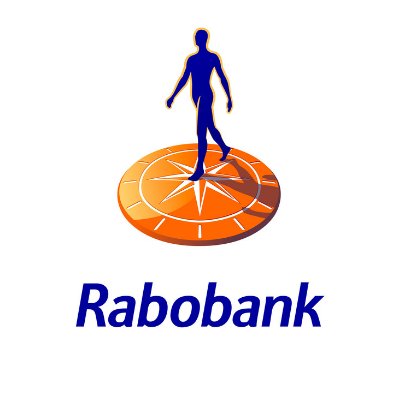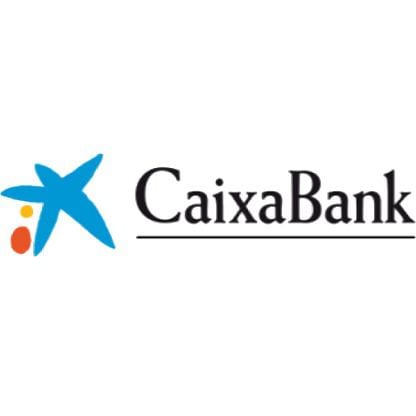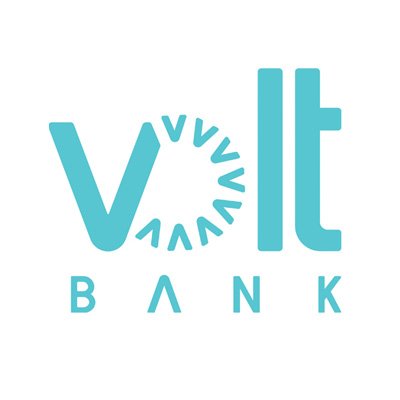Published
- 01:00 am

Finastra has been named best global trade finance software provider by Global Finance at the Trade Finance Awards 2020. The accolade was announced at an awards ceremony held at the BAFT Global Annual Meeting in Frankfurt last week. It recognizes Finastra for its innovative technology in the trade and supply chain finance space.
Torsten Pull, Senior Vice President & General Manager for Corporate Banking at Finastra said, “It’s a great honor to be awarded the world’s best trade finance software provider with our solution that embraces Open Banking and the buildout of an innovative ecosystem, via our platform FusionFabric.cloud. The win reflects our commitment to helping banks compete, stay relevant and future-proof their international trade finance business in today’s challenging marketplace.”
The editorial review board of Global Finance selected the best trade finance providers based on entries from banks and others, as well as input from industry analysts, corporate executives and technology experts. Criteria for choosing the winners included: transaction volume, scope of global coverage, customer service, competitive pricing and innovative technologies.
Joseph Giarraputo, Publisher and Editorial Director at Global Finance Magazine said, “Finastra has a strong track record in trade finance. Its trade and supply chain software solutions enable hundreds of banks to more easily leverage the latest technologies, including cloud computing, advanced data analytics, big data, application programming interfaces and distributed ledger, to digitize their trade finance business and enhance user experience for their corporate customers.”
Finastra’s trade and supply chain finance solutions power over 200 trade finance banks around the world, enabling corporate banks to adapt, with intelligence, insight, and innovation at the core, in line with ever-changing client demands.
The full list of winners can be found here.
Related News

Alex Kreger
Founder at UXDA
There are two different approaches to gain business success. One worked in the recent past and the other works in the digital present. see more

Carlos Figueredo
CEO at Open Vector
The appearance of open banking created an immediate concern within the banks as they would now have to share customer data, competition from challenger banks, etc. see more
- 09:00 am

Rabo Frontier Ventures (RFV), the strategic investment fund of Rabobank, has contributed to a £7.5 million funding round in online UK mortgage broker Trussle
Trussle is one of a new breed of fintech startups that uses proprietary automation and a mortgage monitoring service to compare and track thousands of mortgage products from more than 90 lenders.
Harrie Vollaard managing director of RFV, comments: “We’re looking forward to working closely with Trussle on the next phase of their journey to redesign the mortgage application process, as well as additional services to better support their customers through the home ownership journey.”
Trussle chairman, Simon Williams, says the five-yeard old business has reached a pivotal stage in its growth trajectory. "There’s ample work to be done in revolutionizing this archaic industry," he says. "This new funding will enable us to accelerate our progress, especially through investment in our technology, to make the mortgage process quicker, easier and more transparent. The funding from our investors not only exemplifies the progress we’ve made so far, but also the scale of the opportunity that lies ahead.”
Related News
- 08:00 am

JPMorgan has joined UK Aid in providing $15 million in support for Boston-based accelerator Catalyst Fund, which aims to back 30 fintech startups in Kenya, Nigeria, South Africa, India, and Mexico over the next three years.
Initially established in 2016 by JPMorgan and the Bill & Melinda Gates Foundation, Catalyst Fund has so far lent its backing to 25 fintech startups who have gone on to raise over 10x the amount of grant capital they received and are serving over 1.2 million customers globally.
Catalyst Fund director Maelis Carraro, says: “The additional support from UK aid and continued support from JPMorgan will enable us to deepen our local footprints and ecosystem development role in each of our key markets, as well as welcome new partners that can support our mission.”
For its part, JPMorgan has dipped into its five-year $125 million financial inclusion fund, set up in May last year to improve the financial health of underserved communities, focusing on the use of fintech tools to help people save, boost their credit and reduce debt.
Related News
- 08:00 am

A cyberattack on a major US bank could have significant spillovers to other lenders, with serious implications for the whole financial system, according to research from the Federal Reserve Bank of New York.
The researchers estimate that a hit on a big five bank would affect more than a third of the assets in the whole network.
The extent of the amplification would be even greater if banks respond strategically, which, the authors argue, they are likely to do if there is uncertainty about the attack. Liquidity hoarding would have a dramatic impact on forgone payment activity, reaching more than 2.5 times daily GDP.
"High-value payment and settlement systems may be a natural candidate for a malicious attacker intent on inflicting the largest possible damage to the financial system and the broader economy," says the paper.
Related News
- 05:00 am

As one of the leading types of cyber-attacks, ransomware is expected to dominate cybercrime in 2020. According to PreciseSecurity.com research, weak passwords were one of the most common cybersecurity vulnerabilities in 2019, causing 30% of ransomware infections in 2019.
Weak Passwords Are the Third Most Common Ransomware Cause Globally
The recent PreciseSecurity.com research revealed that phishing scams caused more than 67% of ransomware infection globally during the last year. Another 36% of Mail Protection Service users reported ransomware attacks caused by the lack of cybersecurity training. Weak passwords were the third most common reason for ransomware infections globally in 2019.
The 30% share in the combined number of ransomware infections during the last years indicates a concerning level of password security awareness. The 2019 Google survey about beliefs and behaviors around online security showed that two in three individuals recycle the same password across multiple accounts. More than 50% admitted using one "favorite" password for the majority of the accounts. Only one-third of respondents knew how to define the password manager.
Only 12 % of US Online Users Take Advantage of Password Managers
The 2019 Statista survey reveals that 64% of US respondents find stolen passwords as the most concerning issue about data privacy. However, such a high level of concern didn't affect their habits related to keeping track of login information. According to the findings, 43% of respondents reported that their primary method of keeping track of their most crucial login information was to write it down. Another 45% of respondents named memorizing the login data as their primary method of tracking. At the same time, only 12% of US online users take advantage of password managers.
23.2 Million Victim Accounts Globally Used 123456 as Password
Using hard-to-guess passwords represent the first step in securing sensitive online information. However, according to the UK's National Cyber Security Centre 2019 survey, password re-use and weak passwords still represent a significant risk for companies and individuals all over the world.
The breach analysis indicated that 23.2 million victim accounts from all parts of the world used 123456 as a password. Another 7.8 million data breach victims chose a 12345678 password. More than 3.5 million people globally picked up the word "password" to protect access to their sensitive information.
Related News
- 05:00 am

CaixaBank has started to use artificial intelligence to improve the acquisition of new skills among its employees. The financial institution, chaired by Jordi Gual and with chief executive officer Gonzalo Gortázar, has launched a new version of Virtaula, an online training platform for its entire workforce, incorporating artificial intelligence to identify each employee's areas of interest and recommend courses tailored to their individual profiles.
Virtaula hosts information on CaixaBank Group employees and offers a wide range of online training, including courses across numerous specialities: languages, executive skills, digital skills, finance, risk management, etc. The majority of these courses have been especially designed for CaixaBank by benchmark institutions and training centres in different disciplines. The course catalogue includes options at all levels, from university postgraduate courses to short-duration intensive courses, and they are designed so that they can be taken entirely online through self-training.
The application of artificial intelligence in the Virtaula platform will give each employee access to courses that are potentially more appealing based on their individual profile. These course suggestions will also continue to be enhanced as the system will learn and improve based on user experience.
Furthermore, to make it even easier to access the right training, CaixaBank has introduced a chatbot, which will interact with the user using natural language. This equips the employee with a personal assistant that helps them to locate relevant training content, at any time, even in instances where recommendations are not immediately related to courses that have been taken previously. Employees can also explore the full catalogue of courses by theme, without using the artificial intelligence support, however, given the wide range of courses available, this may make it more time-consuming to identify the most interesting and relevant content for their profiles.
The main benefit of customising internal training through artificial intelligence is the improved access to courses that expand the professional skills of CaixaBank employees. In its 2019-2021 Strategic Plan, the financial institution set out to accelerate digital transformation, to become more efficient and nimble, and to strengthen its collaborative people-focused culture.
CaixaBank, a pioneer in innovation applied to training
The Virtaula platform is the main way for CaixaBank employees to access both regulatory information, which is compulsory for all workers in the financial sector, and self-training courses. In 2019, more than 90 per centof training was taken through Virtaula.
CaixaBank was the first financial services provider in Spain to commit to digitising its internal training platform. In fact, the Virtaula platform turns 20 years old this month: the first version appeared in 2000. Since then, this online channel has evolved, incorporating new resources and technologies, from social networks and tools that facilitate shared knowledge (blogs, forums, wikis, etc.) to gamification techniques to promote learning.
Related News
- 09:00 am

Customer use of Open Banking in the UK has surpassed the one million customer mark for the first time, doubling in the past six months.
The doubling in customer numbers mirrors similar growth in third party service providers. Currently there are 204 regulated providers, up from 100 at the end of 2018, who are fielding approximately 200 million monthly calls on bank account data.
Imran Gulamhuseinwala, trustee, Open Banking Implementation Entity, comments: “One million is a significant milestone, but by no means is it the end. Open Banking is about giving customers access to their data to rebalance the market in their favour. By creating greater competition, we are seeing innovation from new entrants and incumbents, which is leading to greater convenience and crucially greater engagement. We believe 2020 will be the year when adoption of Open Banking financial services really takes off.”
The Financial Conduct Authority recently issued a call for input on proposals to extend open banking rules beyond payment account data to a wider range of products in the general insurance, cash savings and mortgage markets, under a new model billed as 'open finance'.
Christopher Woolard, the FCA's executive director of strategy and competition, states: “The UK has led the way internationally in the development of Open Banking, which supports our objective of promoting effective competition in the interests of consumers. As we look forward, we also want to consider the potential benefits that could come from giving consumers and businesses control over a wider range of their financial data."
Related News
- 01:00 am

With its sights set on an IPO later this year, Australian neobank Volt has closed a $70m Series C round and is now opening up a $50m Series D on a $285m valuation.
The latest round lifts Volt’s total funding to $100 million in equity, and brings the challenger a step closer to a planned listing on the Australian Stock Exchange in late 2020.
The neobanking startup, which recently launched its first deposit product, says the move to an immediate Series D is to meet regulatory capital demands and provide funding for the rollout of additional products.
Steve Weston, CEO & co-founder of Volt Bank, says: "Our first deposit product clearly differentiates Volt from incumbent banks. It is an account that helps customers save and provides a very competitive interest rate without the limited time bonus period restrictions or the need to meet other bonus conditions like most savings accounts in Australia.
"Key to our ultimate global scale is the development of our platform strategy. We are now raising more capital to invest in the development, integration and onboarding of partners that will open up new customer bases with both Volt-branded and white-labeled banking products."









